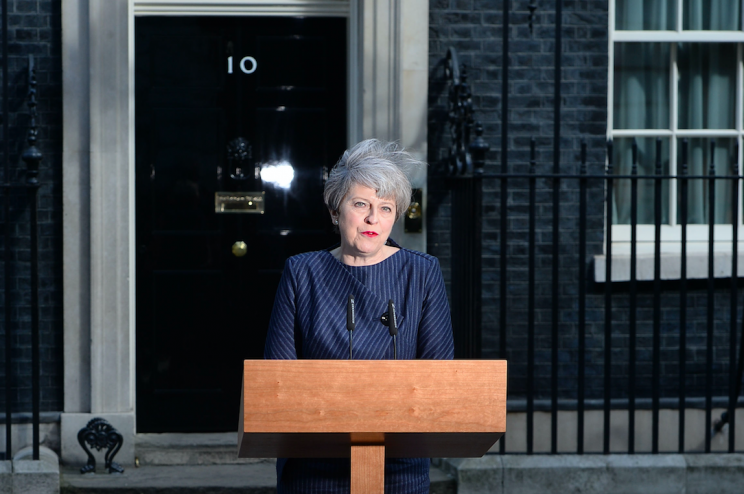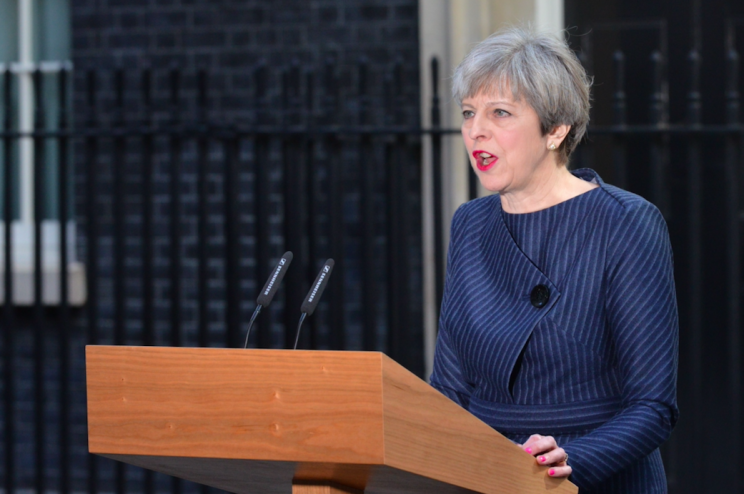Theresa May made shock general election decision while on walking holiday in north Wales with her husband

Theresa May decided to call for a snap general election while on a walking holiday in Wales with her husband it has emerged.
The Prime Minister used the day Parliament returned from the Easter recess – part of which she spent on holiday in North Wales – to say she had “recently and reluctantly” concluded that she would call a snap general election.
The decision to call an election marked a screeching U-turn after repeated denials that she would go to the country at a time when the UK’s future relationship with the European Union was up for negotiation.
Speaking on the steps of Downing Street this morning, the Prime Minister blamed opposition MPs for refusing to back her negotiation position on Brexit, saying that “the country is coming together, but Westminster is not”.
But in the end it was the headache caused by Brexit, and the risk of trying to take deeply divisive measures through the Commons with a working majority of just 17, that forced her hand.

Her decision will also have been influenced by the clear opinion poll lead she enjoys over Jeremy Corbyn’s Labour, with senior Tories urging her in recent weeks to take advantage of the disarray in the opposition ranks to secure a stronger mandate.
Here are the key issues surrounding the election so far:
Can Theresa May actually call a general election?
No. Fixed Term Parliaments Act (FTPA), introduced by the Coalition government in 2010, means that a Prime Minister is not able to call an election at will. The Act was introduced to provide a long-term, stable government for five years, preventing early elections in the wake of good polling figures.
So who decides on whether an election can take place?
Before the FPTA the Prime Minister would exercise royal prerogative but now the power lies in the hands of parliament – meaning MPs must vote whether to back Mrs May’s call for a June election.
MORE: Theresa May calls for snap general election on June 8
MORE: The lady IS for U-turning: All those times Theresa May said she wouldn’t call a snap general election
How can the FPTA be overturned?
Two thirds of the 650 MPs must vote in favour of an early election in order for the FPTA to be overturned. This would mean the Conservatives would need Labour support.
Is Labour likely to vote for it?
Labour leader Jeremy Corbyn has said that he “welcomes” an early election. Labour MPs would find it difficult voting against an election as they would be seen as ruining any chance they have of forming a government – even though they are way behind the Tories in opinion polls.
What if not enough MPs vote for an early election?
There is still a way an election can happen even if the government doesn’t win a parliamentary vote. A no confidence vote in the government, that Tories could vote for, would then see other parties asked to form a government. As no other party holds a majority to successfully form a government, an election would have to be held.
So what happens now?
The Prime Minister will table a Commons motion on Wednesday calling for an election to be held on Thursday June 8. Parliament will then be dissolved on Wednesday May 3, allowing 25 working days before voters go to the polling booths on June 8.
Didn’t the PM say she wouldn’t do this?
She certainly did, on several occasions. Which you can read about here.
Why the change of heart?
Mrs May says that the experience of other political parties “playing games” over the triggering of Article 50 made her concerned that they would jeopardise the success of Brexit negotiations by threatening to block the deal she eventually achieves in Brussels. But opponents accused her of cynically seeking to capitalise on favourable opinion polls to seek an increase to her slender 17-seat majority.
How are the polls looking then?
No prime minister in modern polling history has gone into a general election with such a commanding lead in the polls as Theresa May, whose Tories have registered advantages of as many as 21 points over Labour in recent days, on 44% to 23% for Corbyn’s party. Labour has never in its post-war history been at such a low ebb in the polls 51 days before an election.
What might that mean in terms of seats?
It is of course impossible to be certain of how polling support will translate into seats, particularly in a contest which is likely to be dominated by the debate over Brexit, which might outweigh party loyalties for many voters. However, a Press Association projection based on an average of recent polls suggests that Conservatives could gain 56 seats, leaving Mrs May with a comfortable Commons majority of 124 seats. If the findings of recent polls are borne out, Labour could lose 59 seats and be left with just 173 MPs – the party’s lowest tally since 1935.
How much of an impact will Brexit have?
That is the big question mark hanging over the election. The UK split 52%-48% in favour of Leaving the EU in 2016, but there is little polling evidence of this division carrying over into party politics, with Ukip support declining since the referendum and the strongly pro-EU Liberal Democrats struggling to make significant inroads in the polls. Mrs May will argue that a strong Tory victory is needed to give her a mandate for Brexit talks. Lib Dems will argue that votes for them represent the best chance of stopping a so-called “hard Brexit” and keeping the UK in the single market. Ukip will say that they need a strong showing to stop Mrs May from backsliding. Labour risk being caught in the middle.
Top pic: Rex

 Yahoo News
Yahoo News 


